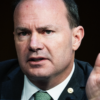One by one, all but seven states have succumbed to pressure to adopt national academic standards. But in a recent bid to retain local control, members of a regional school board in Massachusetts asked state officials to reconsider that decision, according to Education Week.
The Massachusetts school board expressed concerns that the Common Core State Standards, endorsed by the Obama administration, would result in the loss of local control. Its opposition is the latest knock on national standards, following criticism from leaders in South Carolina, Texas and Virginia. (Click here to learn more about restoring federalism in education.)
The move in Massachusetts began in December when the Tantasqua Regional School Board requested that lawmakers draft a bill to override the state board’s decision to adopt Common Core State Standards. A little more than a week ago, on Jan. 21, Republican State Rep. Todd M. Smola filed legislation to do just that. State Rep. Anne M. Gobi and State Sen. Stephen M. Brewer, both Democrats, co-sponsored the bill, which would retain Massachusetts’ own standards and its exam, the Massachusetts Comprehensive Assessment System, or MCAS.
The bill is unlikely to pass the Democrat-controlled legislature, but it reflects a wider skepticism of the national standards movement — skepticism rooted in the spirit of federalism.
Texas Gov. Rick Perry (R) has led the way. In an exclusive interview with Heritage, he decried the Obama administration’s efforts to entice states to support national standards in exchange for federal funding under the Race to the Top program.
“We know what works for our children,” Perry said. “The fact is that Washington’s Race to the Top with their national standards and national testing — yet to be worked out, of course — we think would be devastating to the young people of the state of Texas.”
Tantasqua board members James A. Cooke, a Republican, and Chairwoman Kathleen M. Neal, a Democrat, are among the many who share that concern. Cooke said he suspects Massachusetts adopted the standards in part to improve its competitiveness for Race to the Top funds — which awarded points to states that adopted the standards. Neal said she dislikes the idea of teaching to tests.
Ironically, of all states, Massachusetts might have had the least reason to adopt national standards in the first place. The state’s standards have long been widely acclaimed. In the 2007 Trends in International Mathematics and Science Study, for example, Massachusetts fourth graders ranked second worldwide in science and tied for third in mathematics, while the state’s eighth graders tied for first in science and ranked sixth in mathematics.
Prior to the school board’s action in Massachusetts, the Boston-based Pioneer Institute warned about the move to adopt the Common Core, arguing the state’s existing standards and tests were superior to the national model.
“We have some of the most exacting standards in the United States,” Cooke said. “Why should we use someone else’s standards?”
Educators in Virginia, a state proud of its own Standards of Learning test, share those concerns. Opposition to national standards in Virginia has attracted bipartisan opposition.
From the outset, the Obama administration said adoption of national standards among states would be “voluntary,” but Race to the Top funding created an incentive cash-strapped states could not easily resist. Virginia, for example, applied for the first round of Race to the Top, but withdrew from the second round when Gov. Bob McDonnell (R) took office. National standards were a big reason.
With a majority of states now supporting national standards, the new fear is a national test. After all, the Obama administration will need some way to ascertain whether students have actually met the Common Core. Massachusetts is among the states involved in the Partnership for Assessment of Readiness for College and Careers, one of two multi-state consortia that aim to create common tests by the 2014-2015 school year.

























